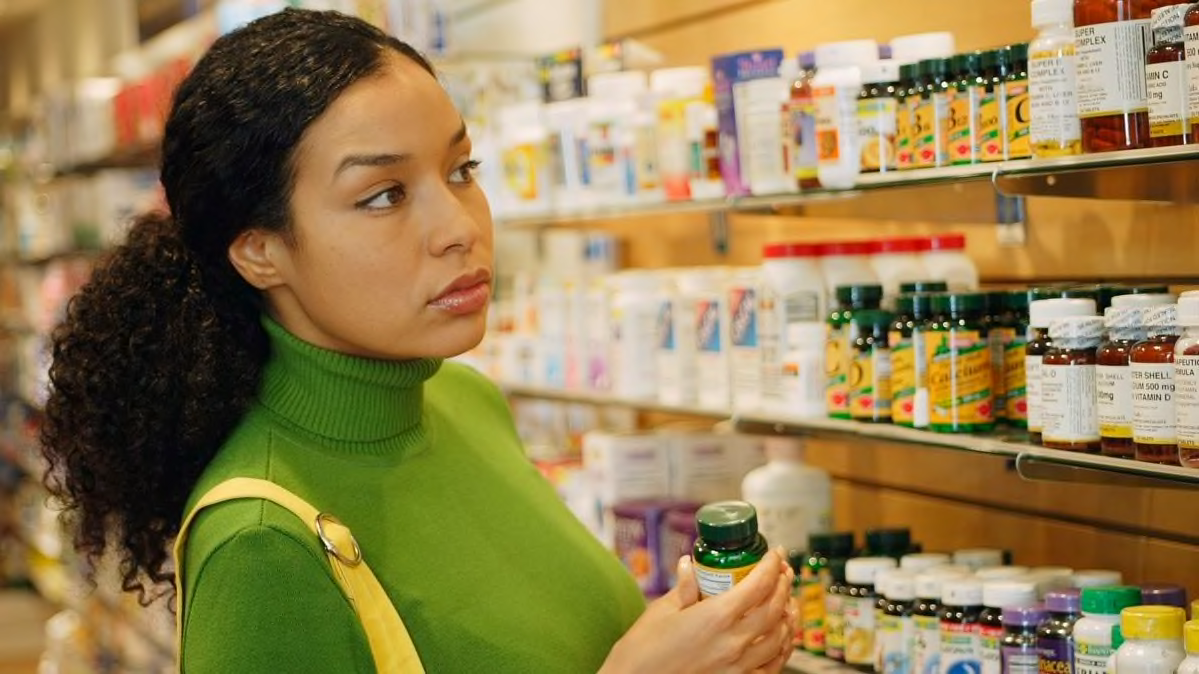Third-party groups test them to ensure they contain what’s on the label and aren’t contaminated.

If you’re shopping for supplements in a store, don’t expect much help from the pharmacist or other staffers. That’s the conclusion we drew after sending 10 secret shoppers to ask about echinacea and turmeric in 34 stores (branches of Costco, CVS, GNC, Kroger, Target, The Vitamin Shoppe, Walgreens, and Walmart) in seven states.
In most cases, pharmacists weren’t familiar with potential risks for the supplements on their shelves and rarely warned customers about problems such as interactions with prescription medications. A notable few did; when one saw the list of medications our shopper was taking, he wisely advised her not to take any supplements without consulting her physician.
Because the Food and Drug Administration doesn’t verify that supplements contain what they say they do or whether they’re contaminated with heavy metals, bacteria, or pesticides before they are sold, some third-party groups have taken on the role.
These groups (see chart below) include ConsumerLab.com, NSF International, and U.S. Pharmacopeia (USP). USP is a nonprofit organization that sets what CR experts say are the most widely accepted standards for supplements. (It also sets mandatory standards for pharmaceuticals.) The not-for-profit NSF offers two types of certification: NSF Contents Certified and NSF Certified for Sport. ConsumerLab.com, a for-profit company, regularly tests and certifies supplements. A more recent addition is UL, a for-profit company known for testing electronics.

